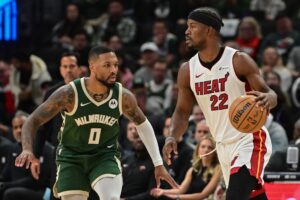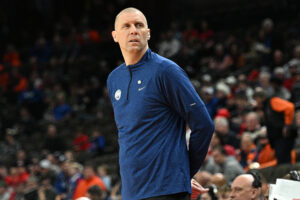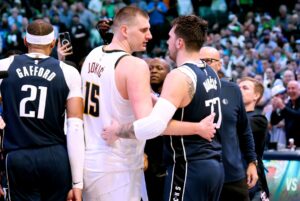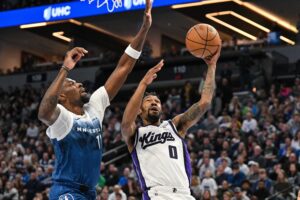NBA Comparison: 2000s Los Angeles Lakers vs. LeBron James’ Teams

2000s Lakers
Kobe Bryant, Shaquille O’Neal, Pau Gasol, Metta World Peace, Derek Fisher, Tyronn Lue, Robert Horry, Rick Fox, Ron Harper, Lamar Odom, Luke Walton, Andrew Bynum, Trevor Ariza, and Brian Shaw would make up a deep team that has not only superstar talent, but also a long list of role players who could contribute in various areas. Those role players did not necessarily require the ball to have value. Every great team needs a complete roster. We’re not trying to make an All-Star team; we’re trying to construct a well-rounded roster in which each member has a clearly defined role. The thought is that roster formulation must result in winning; we do not just want the biggest names we can add. It also takes into account the number of seasons they played with their respective teams, and in some instances, where the players were in their careers when they joined the discussion.
With 10 years to choose from, there are some high-level Lakers players like Glen Rice, Horace Grant, Isaiah Rider, Mitch Richmond, Lindsey Hunter, Karl Malone, Gary Payton, and Caron Butler that had to be cut from the list due to the time they were on the team and whether or not that time resulted in championships. Had it been about a particular season, those and other players would be key to the story, but for the purposes of this exercise, we focused on a roster that weighed in large part on longevity. Most of the players here were contributors to the Lakers for several seasons.
LeBron James-led Miami Heat and Cleveland Cavaliers
Guards
Defending James and the Small Forward Position
Big Men
Lamar Odom, Pau Gasol, Robert Horry, and Shaquille O’Neal. That’s a solid rotation without being too “All-Starish,” a term I’ll coin to refer to fictional teams that don’t have enough basketballs to go around. Horry was always mostly a catch-and-shoot guy. Odom could handle the ball and be a big creator. Gasol had skill inside and outside. And O’Neal, of course, was as dominant a big man as we have ever seen, especially on those early 2000s Lakers teams, when he put 40 and 20 (or close to it) on Tim Duncan. I’d be afraid to see O’Neal going against Bosh. It would be like a car crash – you just can’t look away. The power of O’Neal’s finishes used to lift the roof off the arena. And the drama of the moment carries the momentum of a franchise’s championship aspirations.
On the other side, LeBron James’ teams featured Bosh, Love, Ilgauskas, Gooden, Varejao, and Haslem among others, who, like the Lakers’ guards, are more of the role player variety. Compared to the more star-laden Lakers, James’ teams featured big men (aside from Bosh) who would mostly just hit open shots and do the dirty work.
Would that team’s coach (Erik Spoelstra?) play Big Z to try to keep O’Neal away from the rim? Would that push Bosh to the power forward spot where he would have to match up with Gasol? Where does Love play? Does he go out and guard Odom in transition? Or Horry at the three-point line? If they go small, does Bosh get destroyed down low against the Big Aristotle? Could Love guard O’Neal down low? How do O’Neal and Gasol guard a smaller lineup with range, one that could feature Bosh and Love? Horry is a good match-up for those players, as is Odom. The conversation is endless.
Final Analysis
James is one of the best players of all time. Bryant and O’Neal in their primes are up there, too. Ray Allen and Chris Bosh were great complimentary stars, as was Wade. Irving is probably the fourth best player on either team after Bryant, James, and O’Neal (considering where Wade was in his career when he played with James). I think two of the three best players for either team are Lakers, but the rest of the top six are Heat and Cavs. Beyond that is a mix of all three teams.
The Lakers might have the best defensive personnel to deal with a James type player. A young Bryant could allow them to play a bigger line-up and deal with Irving, or mix and match depending on who James’ team had at the two-guard spot. If we asked which teams had the best five players, it might be a different answer than who had the deeper, better-rounded overall team. We can speculate and think about who would guard whom and how that chess game would be played as we move the personnel around. I still don’t know how you consistently deal with a 2000-2003 Shaq without helping off of Kobe and a long line of championship-winning three-and-D players.
I think it’s close, but remember, we had to combine the Heat and the Cavs against the Lakers. Also, does Jackson and the fact he has more rings than fingers give the Lakers a slight advantage over Spoelstra or whoever else would theoretically coach James’ team? Spo has proved his value, but Jackson is like what John Wooden is to the college game. Another key point might be that many people view these players differently.
Does the younger fan just think of Kobe and Shaq as the players they were in their most recent seasons, or has everyone seen them enough when they were in their early-mid 20s? Do we think of all the 2000s Lakers as a decade older on average than the Heat and Cavs players we’re comparing them to? Instead, picture O’Neal at 28 in 2000. Picture Bryant at 22. Fisher at 26. Not the older, slower, less athletic versions of themselves that you may remember. That’s hard to do. As for the older fans who like to reminisce, you can’t prop your former giants to proportions that exceed what they were.
What do you think? Who matches up with whom? Who wins this fictional battle, and why?
Main Photo:
Embed from Getty Images






